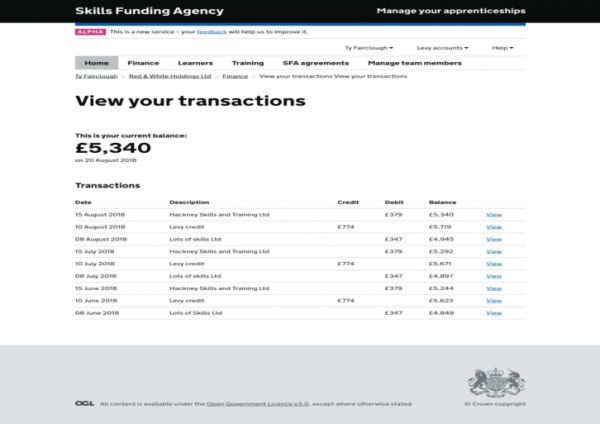7 things you need to know about the apprenticeship levy

If your annual wage bill is over £3m, you will be paying the levy
There are absolutely no exceptions to the levy. If your annual wage bill is over £3m then 0.5% of any money over that £3m will automatically be deducted from your wage bill into a fund for apprenticeships. £3m may seem like a huge amount, but that's merely the equivalent of having 150 staff on an average of £20,000 per year, so it is worth researching beforehand if you will be a levy payer. Once you have your annual wage bill calculated, there are useful tools online that allow you to calculate how much money will be deducted into the apprenticeship fund.
Those not paying the levy can still take advantage of it
Even if your annual wage bill is under £3m, don't just stop reading here; there are also opportunities in the levy for you. There will be no compulsory payments into a levy fund for employers with annual wages under £3m, but training can be paid for through the same online training service and the Government will ultimately cover 90% of the training costs; meaning that for employers under that £3m mark, training can be provided for staff with the employer only needing to cover 10% of the cost.
Training programmes must be accredited
The skills funding agency has provided a list of apprenticeship providers that can be used for levy funds. If you have a training provider that you want to keep using after April, you will need to check they are on that register; if they are not on that register, levy funds can't be used for their training programmes. Greg Dean from the Government's national apprenticeship service has urged employers to be proactive on this: "If you have a provider that is not currently registered and you want to keep using them, you need to say to them: 'Go and get yourself registered'," he said.
The Government will top up funds
Once you have started paying the levy, there is some Government help at hand. Compulsory levy payers will see a 10% top up on all levy funds from the Government.
The whole process is organised online
Those funds can all be viewed in an online account. Levy payments will automatically be deducted from the employer by HMRC and will appear in the account. "Over the next few months, we will be sending out registration information for an online account. The idea is to make it look like a bank statement," Dean explains.
What the levy money can be used for
The apprenticeship levy funds can - unsurprisingly - be used only for apprenticeships from official training providers. It therefore can't be used for travel, subsistence costs, managerial costs, work placement programmes or costs of setting up an apprenticeship programme.
All apprentices must go through a final assessment
From April, all apprentices must go through a final examination to pass. This assessor must be independent and thus have had no involvement in the previous training or management of the apprentice. It has been confirmed that the British Institute of Innkeeping (BII) will be an approved assessor for the pub industry and a full list of assessors is provided online.







